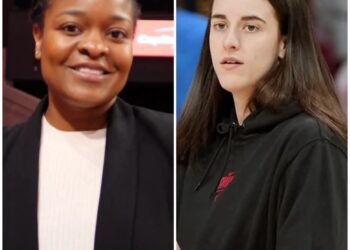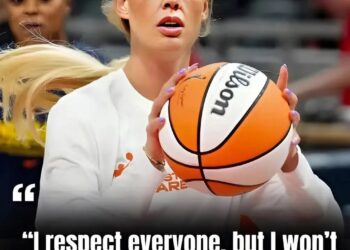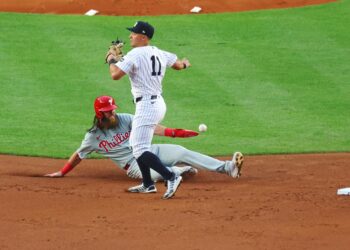For most Major League Baseball players, the offseason is a time to rest, reflect, and prepare their bodies for the next grueling season. But for Paul DeJong, the cerebral shortstop known for his glove and power at the plate, downtime doesn’t just involve batting cages and conditioning workouts. It also means diving into textbooks, lab research, and complex scientific theory. DeJong, an MLB veteran, has long held a fascination for science, and over the years, that interest has grown into a second love — one that rivals his passion for baseball.
DeJong’s scientific journey began well before he ever stepped onto a big-league diamond. A native of Antioch, Illinois, he majored in biochemistry at Illinois State University. While most student-athletes often opt for lighter academic loads, DeJong pushed himself in the classroom with the same discipline he brought to the field. He earned a degree in the demanding subject in 2015, graduating with honors. His academic achievements laid a strong foundation for his later pursuits in science, showing early signs that DeJong was not just another ballplayer with fleeting off-field interests.
Even after being drafted by the St. Louis Cardinals in the fourth round of the 2015 MLB Draft, DeJong never shelved his academic aspirations. As he climbed the minor league ladder and eventually made a splash in the majors in 2017, finishing second in NL Rookie of the Year voting, DeJong continued to explore his love of science during the offseason. He has taken courses at institutions such as Washington University in St. Louis and spent time in labs studying molecular biology and chemistry.
For DeJong, science is more than just a hobby or a fallback plan. It is a deeply personal interest that stimulates his intellectual curiosity and offers a balance to the high-pressure world of professional sports. “Baseball fulfills the physical part of me,” DeJong has said in interviews, “but science feeds my mind. I need both to feel whole.” This dual identity sets him apart in a sport where the focus is often singularly on athletic performance.
One of the most compelling aspects of DeJong’s off-field life is how seriously he approaches scientific work. In 2020, during the pandemic-shortened season, he spent part of the offseason collaborating with scientists at Washington University’s School of Medicine. He assisted in genetic sequencing studies and even helped analyze research on COVID-19. While he was not a lead scientist, his contributions were meaningful, and more importantly, he approached the work with humility and eagerness to learn.
This unusual balance between baseball and biochemistry has not gone unnoticed. DeJong has spoken at conferences, been profiled in scientific publications, and served as a bridge between two worlds that rarely intersect — professional sports and academic science. He often encourages young athletes to develop their interests outside of the game, stressing the importance of having an identity that isn’t solely tied to athletic performance.
DeJong’s love for science also reflects in his analytical approach to baseball. He’s known for studying advanced metrics and biomechanics to refine his swing and fielding technique. His intellectual approach to the game has helped him stay sharp and competitive, particularly as he’s battled through slumps and injuries. Just as in the lab, baseball requires constant adjustments, data interpretation, and a willingness to fail before succeeding.
There’s a sense of purpose in the way DeJong blends his two passions. In a sports culture where athletes are often told to “stick to the game,” DeJong has forged his own path. He’s not trying to make a name for himself in science to gain headlines or to secure a post-retirement career. He genuinely enjoys the subject, the research, the discovery — the same way he enjoys the thrill of turning a double play or hitting a home run.
Looking forward, DeJong has expressed interest in pursuing more serious scientific study once his playing days are over. He has mentioned aspirations to earn an advanced degree, possibly even a Ph.D. Whether he ultimately ends up working in a lab, teaching in a university, or contributing to public health research, one thing is clear: Paul DeJong’s story is not just one of a gifted athlete, but of a multi-dimensional human being.
In a league full of athletes with unique talents, Paul DeJong stands out for proving that a curious mind and an athletic body don’t have to be mutually exclusive. For him, science isn’t a backup plan — it’s a parallel passion. And that makes his journey not just inspiring, but a rare and refreshing example of how diverse the h
uman spirit can be.











